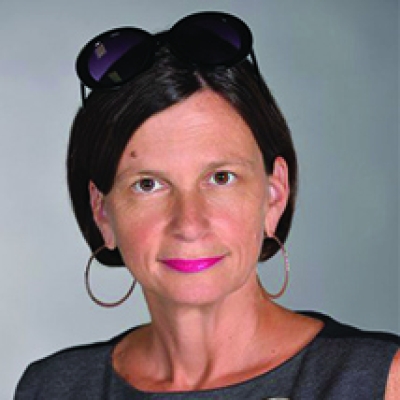A Changing Climate Means A Changing Society. The Island Press Urban Resilience Project, Supported By The Kresge Foundation And The JPB Foundation, Is Committed To A Greener, Fairer Future. This Article Was Originally Published September 23, 2019 in The Sun Sentinel.
This time, it was a drill.
After decimating the Bahamas, Hurricane Dorian stayed mostly offshore as it churned up the East Coast, avoiding a direct hit to Florida’s coastal communities. But in the uncertain days before the storm, thousands of elderly residents were evacuated from the state’s nursing homes, in an effort to prevent tragedies like those that struck after Hurricanes Katrina and Irma.
The unsung heroes of that effort are the nursing home staff and other caregivers who packed up and transported their patients. Increasingly, caregivers serve as first responders when disasters threaten the elderly and infirm. Our research shows that these caregivers are nearly as vulnerable as their charges. But with proper recognition and support, caregivers could be a linchpin of successful disaster response, as well as mitigation and recovery.
Low-income and minority communities are hit hardest by hurricanes and other extreme weather. So caregivers — predominantly women of color earning less than $15 an hour — are often personally at risk when disasters strike. They live in flood-prone neighborhoods often with substandard community housing and infrastructure. And many lack the resources, such as savings accounts and reliable transportation, needed to escape or recover from disaster.
Still, caregivers show up for the most vulnerable among us: the elderly, sick, and the physically and developmentally impaired. They may be charged with managing evacuations or helping patients shelter in place, often in facilities that are ill-prepared for climate and other disasters. As one caregiver remarked in a recent focus group, “We do it all and are trained in nothing.” In this role, caregivers’ knowledge of patients’ needs — daily routines, medical regimens — can mean the difference between trauma and comfort, life and death. Yet, they are rarely included in climate resilience planning and are inadequately supported in disaster events.
Caregivers are underappreciated and underutilized partners in disaster preparedness, response and recovery. They represent a large — and growing — force: SEIU alone represents 1.1 million organized caregivers, serving some 60 million patients across 29 states. Given their critical role in disasters and the vulnerabilities of this population, we must ensure that caregivers get the professional recognition, pay, training, and resources to do this important job well.
First, we can position caregivers as first responders, ensuring their participation in climate resilience planning within affected communities, nursing facilities, FEMA and the larger emergency management ecosystem. We need to professionalize their roles and pay them adequately for their work in climate resilience, providing education on climate change and health, disaster preparedness and post-disaster recovery. We can elevate their roles in climate mitigation by training home health care workers, for example, to conduct home audits, disaster assessments and emergency preparedness.
Wages should rise along with responsibility and skill. In fact, wages should rise, period. Paying caregivers a living wage would recognize the essential work they perform for the elderly and infirm — a category that will eventually include all of us. Those who comfort, bathe, diaper and protect our vulnerable family members should not have to live on the margins, one paycheck away from disaster themselves. Raising wages would boost the resilience of caregivers and, by extension, those who depend on their services.
The need to boost our collective resilience has never been more urgent. In a little more than a decade, one in five Americans will be over the age of 65; by 2035, the elderly will outnumber those aged 18 and under. Moreover, the patient population is expected to triple over the next decade — not just from the aging of Baby Boomers, but also the unrecognized growth of younger patients with ADHD, autism and similar disabilities. As the number of in-home and nursing home patients grows and the planet warms, we face a rising toll from extreme weather and other disasters. Those converging trends foretell a humanitarian crisis in the making, unless we act now. There is much we can do to head off the worst impacts, including caring for — and empowering — our caregivers.
This time, it was a drill — at least for the elderly Floridians who evacuated ahead of Hurricane Dorian. Next time, we may not be so fortunate.




